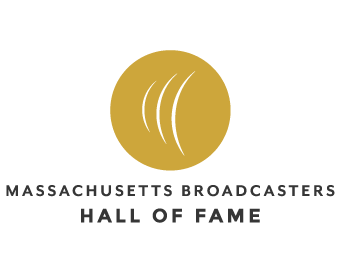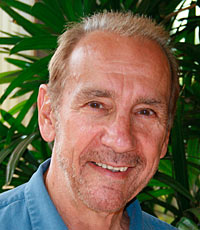After graduating from the Pasadena Playhouse in Pasadena, California with a Bachelor-of-Theater-Arts degree, Charles Laquidara tried many different lines of work while he sought acting roles in Hollywood. One of those jobs was as an announcer at KPPC-FM, a Classical music radio station that was located in the basement of the Pasadena Presbyterian church.
When KPPC switched formats and became one of the pioneers of “underground rock,” Laquidara was assigned to work the overnight shift, where he gained attention as an innovator who deftly combined Rock and Roll with other types of music — including Classical. It was a dubious notoriety of sorts: “He’s that wacky actor who doesn’t know that much about Rock or Classical music, but he mixes them pretty well!”
In 1969, as free-form ‘Underground’ radio evolved into ‘Progressive Rock’ radio, Laquidara was hired at WBCN in Boston to replace disc-jockey Peter Wolf, who was leaving to devote more time to his new group, the J. Geils Band. For the next three years, Charles worked several different shifts at ‘BCN; and in 1972 he took over the morning-drive slot with a show that he called ‘The Big Mattress.’ It was there — with the exception of a short sabbatical from 1976 to 1978 — that Charles remained until early 1996.
Long before Laquidara had begun doing morning-drive radio, FM stations had a history of faring poorly in the daylight hours. Since FM Rock’s largest audience usually tuned in after 6:00 p.m., the most popular Progressive-Rock jocks were traditionally scheduled to work night-time shifts. But Charles’ zany antics, his irreverent politics, and his outlandish spoofing of AM radio changed that.
Within two years, WBCN’s morning ratings had improved to the point where they surpassed all the night-time radio shows in Boston. The audience demographic also expanded –from a small percentage of the male 18 to 24 year-old audience, to large shares of the 18 to 34’s, both male and female. Other FM stations, realizing the profit potential, soon followed suit and began putting their strongest air-personalities into the morning-drive slot.
By 1980, FM radio had become not only the major source of Rock and Roll music, but it had also proved to be a lucrative outlet in which to do business in the future. Charles’ ‘Big Mattress Show’ had become an institution in Boston radio; and thousands of listeners tuned in each morning from 5:30 to 10:00 to get their fix of rock and roll, alternative news, surprise wake-up calls, weather, traffic, and an ever-growing cast of characters that varied from the outrageous clone, ‘Duane Ingalls Glasscock’, to ‘Karlos’, the computer that thought it was human. There were the spaced-out ramblings of Canada’s ‘Captain Squid’, and the boisterous posturing of ‘Tank’, (the big, opinionated, guy-next-to-you-at-the-sports-bar character); Darryl Martinie, (the Cosmic Muffin) the show’s resident astrologer; and ‘Buck’, the goof ball who couldn’t tell whether the two fingers you were holding up meant “2” or “11” (hellooo!?). And there was ‘Norman’, who gurgled cryptic anecdotes from somewhere underwater. This was totally off-the-wall entertainment, unparalleled in the Northeast –and WBCN ruled the airwaves of New England for almost three decades.
On April 1,1996, ‘The Big Mattress’ shifted to the 24th floor of the Prudential Building, at Boston’s only Classic-Rockstation, 100.7 WZLX.
There, Charles and the entire morning-show crew continued to rule the airwaves, achieving the #1 ratings slot among men 25 to 54 in their first three months on the air.
As he describes it, “The Charles Laquidara Radio Hour (weekday mornings 5:30 to 9:00) was a show that gave me the chance to say the things I wanted to say –mostly through the music I played and through the original comedy skits we wrote and produced –we provided lots of information listeners needed to survive through the day. Most importantly, it was back to basics: more songs in a three-and-a-half-hour period each morning than any other radio station in New England! In fact, WZLX was the only Boston station that rocked in the morning. I think it was as close to ‘radio the way it used to be’ as you could have gotten with commercial radio in the 90’s.”
On August 4th, 2000, Charles did his last radio show in Boston. Off to be with his family in Maui, Charles said goodbye to the ZLX audience on that Friday morning with a 4 1/2 hour no commercials, no-holds barred, “freeform” radio show which was touted by local media critics as “one of the finest radio shows Boston (and maybe the U.S.) has heard in the last ten years – or will ever likely hear again…”





